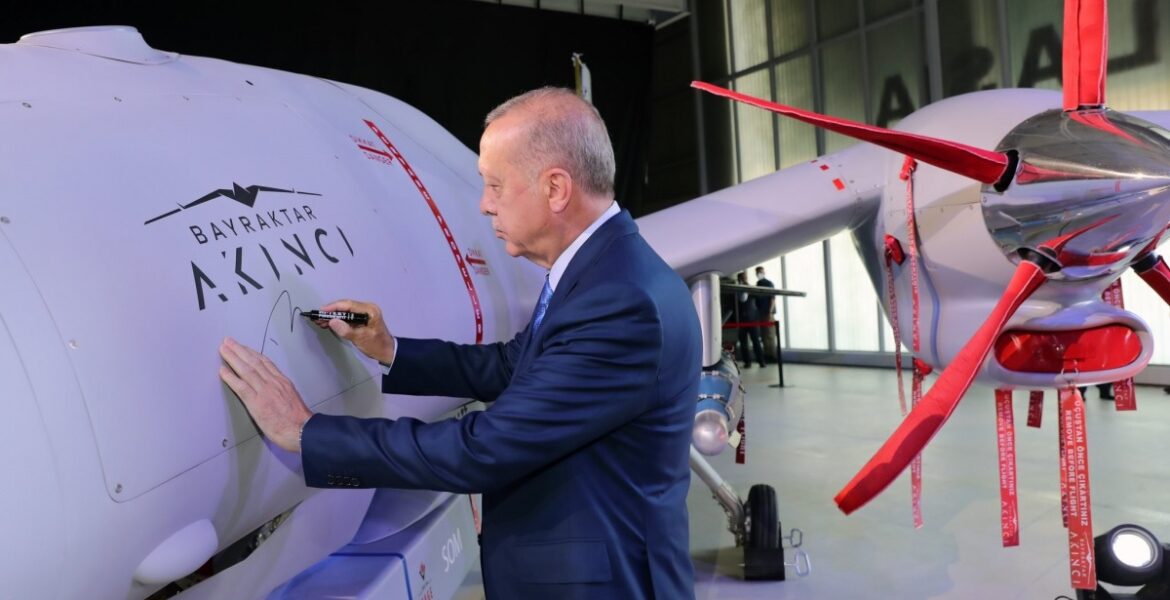Turkish drones may now be visiting us everyday, but Greece is already preparing the system that renders them useless.
The much-advertised Turkish drones are by no means invulnerable and as it has been proven they can be very easily "blinded" or misled by smart - and cheap - electronic countermeasures.
The National Centre for Research and Technological Development (EKETA/IPTHIL) is already at the stage of final tests for the first Greek anti-drone platform.
The research team is ready to move to the stage of final tests in real conditions while, at the same time, EKETA is in discussions with private companies for its eventual commercial exploitation.
In the past days, as Mr. Dimas reported to AMNA, the Institute of Information Technology and Communications of the National Centre for Research and Technological Development (EKETA/IPTIL), within the framework of the 2020 European project ALADDIN, participated in the planning, development and evaluation of an anti-UAV (Unmanned Aircraft Systems) system.
It is a comprehensive solution to the growing drone threat and involves the building of a state-of-the-art system. It has significant research into various detection and neutralisation technologies and functions.
There has also been deep learning methodologies and integrated sensors of various types to implement the first integrated platform of Greek design for the detection, identification, localisation and neutralisation of unauthorised and potentially hostile unmanned aerial vehicles.

As Mr. Dimas noted to AMNA: "We want to make use of the talented Greek scientists to cope with the challenges of our time, such as national defence/security.
"The EKETA team is developing an integrated, reliable scientific solution, which is the first anti-drone platform designed in Greece and is based on state-of-the-art systems. Today, we see the increasing impact of new technologies, artificial intelligence, robotics and algorithms on the security pillar.
"Greece, with its scientific potential, can play a leading role in this field. The initiative is a good example of what we have set as our goal, namely to more effectively connect domestically produced research, innovation, new technologies and entrepreneurship with Civil Protection and National Defence."
The system participated in the data challenge within the framework of the International Conference on Military Communications and Information Systems (ICMCIS 2021). The competition was organised by the NATO Information and Communications Agency and ran from February to May 2021.
It won 1st place by proposing a tracker, based on Machine Learning/Artificial Intelligence (AI) technologies, with an innovative tracking method, which based on the correlation and fusion of data from multiple sensors.
Today EKETA is in the phase of perfecting the anti-drone system in terms of the different sensors used (radar, thermal and optical cameras, microphones, radio wave detectors) and the algorithms developed, with the research team at the stage of its final tests in real conditions.
At the same time, EKETA is in discussions with private companies for its eventual commercial exploitation.
For his part, the chairman of the Board of Directors of EKETA Dimitris Tzovaras stated that "the development of this advanced multi-threat drone detection system by EKETA has a double meaning: both because it is the result of utilising the knowledge produced in our Research Centre, and because it promotes innovation and the economy of knowledge for the benefit of society, providing, in this case, key solutions in the field of security and protection of the state and citizens.
"For these reasons, we are happy to be in the final phase of its optimisation and particularly optimistic that we will soon proceed with its commercial exploitation."
Finally, the Level B researcher of the Institute of Information Technology and Communications (IPTIL) of EKETA, Konstantinos Votis, noted: "Now through deep learning methods it is possible to develop precision mechanisms for the detection of threats from unmanned systems of aircraft, contributing decisively to the safety of critical infrastructures".
READ MORE: Pentagon leaks: Greece could be sending 70 Leopard 2A6HELs tanks to Ukraine.


